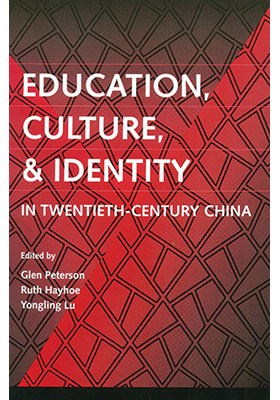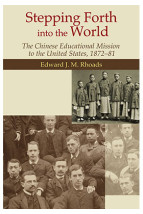Education, Culture and Identity in Twentieth-Century China
(二十世紀中國教育、文化與身份)
ISBN : 978-962-209-535-9
July 2001
504 pages, 6″ x 9″
For sale in Hong Kong SAR, Macao SAR, Japan, and Singapore only
- HK$220.00
Educational pursuits run like a rich thread through the fabric of China’s turbulent 20th century. From the founding of China’s first modern school system in the late Qing dynasty through the republican era to the latest educational developments in the People’s Republic of China, this book seeks to understand how developments in education contributed to, and were in turn influenced by, cultural patterns and the ongoing search for identity by individuals, collectivities, and states. Its sixteen contributors explore three themes that have enlivened China studies in recent years: sino-foreign interactions, state-society relations, and gender representation and identification.
Unlike most studies of modern Chinese education that focus exclusively on the post-1949 era, Education, Culture, and Identity in 20th Century China represents a deliberate attempt to break through the 1949 barrier and embrace the entire century. Culture emerges in this study as a deeper level factor that underlay the development of education in each period, and shaped certain recurrent patterns, while identity involves a search for individual and collective meaning that went on under different regimes. The product of a genuinely multidisciplinary effort to promote cross-fertilization among an international team of scholars in a wide range of disciplines, Education, Culture, and Identity in 20th Century China will interest students and scholars of modern China, comparative and international education, educational policy, and international relations. It will also appeal to policy makers and professionals associated with international organizations.
“A very scholarly and eminently readable history of several critical aspects of twentieth-century education in China.” —John N. Hawkins, University of California, Los Angeles
“Peterson, Hayhoe, and Lu have produced an ambitious and highly successful multidisciplinary effort that breaks new ground by bridging several gaps commonly found in the literature on China. Not only have they broken through the institutional wall that has long separated education specialists, who write in the tradition of comparative education studies, and social scientists, who use an area studies approach, but they have also transcended the ‘1949 barrier’ in demonstrating the key continuities that have marked educational policy and practice in both the pre-and postrevolutionary periods. This volume will be widely read and cited.” —Stanley Rosen, University of Southern California
“This work makes a highly unusual and valuable contribution to the field. The authors offer us new vantage points from which to understand education as a process, China as a dynamic and complex society, and the interaction of the two.” —Lynn Paine, Michigan State University


